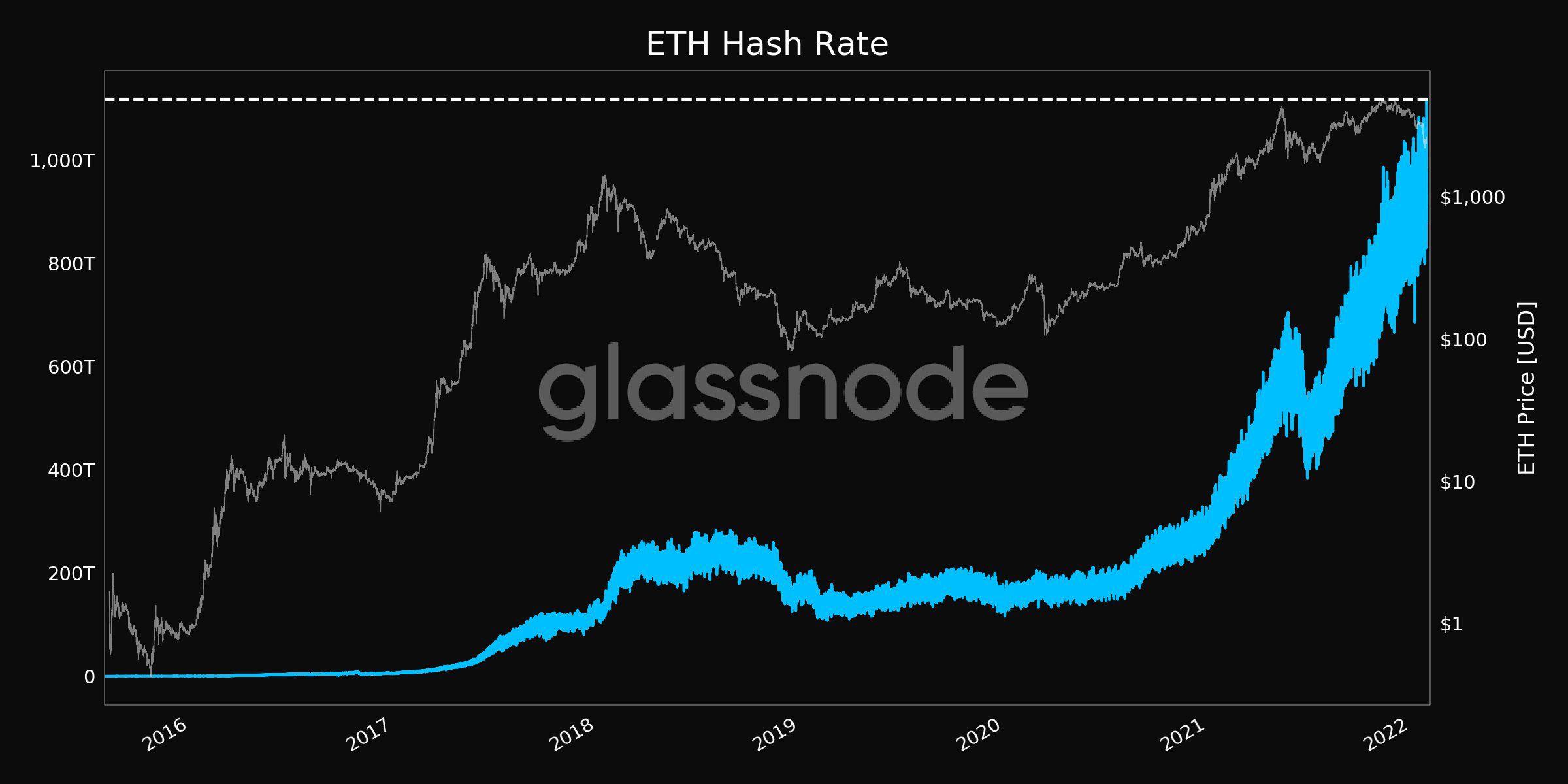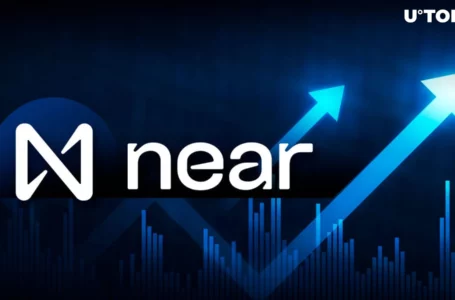
The rise of Ethereum over the previous year has made mining on its network more attractive, revealing the network’s hash rate reaching an all-time high.
On Friday, Ethereum’s hash rate hit a new ATH of 1.1PH/s, according to data from Glassnode – just two weeks after hitting its previous all-time high of 1.08PH/s.
Crypto mining hash rate is the measure of computational power required to verify transactions and add new blocks to a Proof-of-Work (PoW) blockchain. Ethereum, like Bitcoin, uses the PoW consensus, which has come under increased scrutiny due to the amount of energy it requires to function.
Typically, an increase in mining hash rates usually means that additional computing power has joined the network to make it more decentralized and secure. A drop in this metric indicates that fewer nodes are online, which typically impacts network speed and security.
Ethereum’s inevitable switch to PoS
As things stand, the days of mining on Ethereum are far from over. While Ethereum has been planning a switch to a Proof of Stake (PoS) consensus for some time now, that doesn’t look like happening soon.
Last December, the network implemented the Arrow Glacier upgrade, further extending the timeline for the network’s planned move to consensus PoS. Thus, the hash rate will likely reach a new ATH as more nodes join the network.
However, the switch to PoS is inevitable for Ethereum no matter how many additional delays come its way, removing the requirement to mine, and instead, having transactions validated by staking on special nodes. Ultimately, it will scale the entire process and serve as a secured network with cheaper gas fees.
For years, this upgrade has been touted as the solution to the myriad problems plaguing the network. And with Ethereum steadily losing market share in DeFi and NFT to faster and cheaper alternatives, it becomes necessary to address its scalability issues.
But, a switch from Proof of Work (PoW) to Proof of Stake (PoS) will also mean that mining will stop. PoS networks only require validators who stake tokens to confirm transactions. While that has several benefits, some consider it not decentralized enough.


















